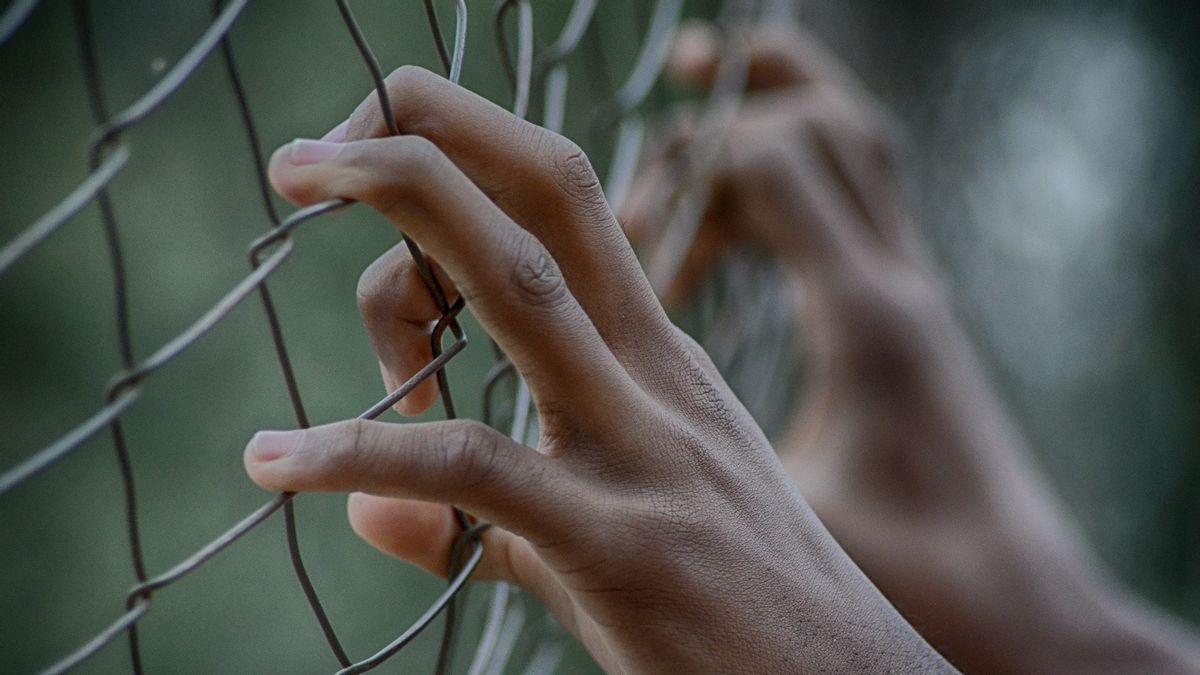JAKARTA - The policy of the Ministry of Law and Human Rights regarding the release of 35 thousand prisoners through assimilation and integration programs related to the prevention of transmission of the corona virus or COVID-19 in prisons and detention centers has received a negative response. Because, not infrequently the prisoners who are released have repeated their actions against the law.
One example is a pair of motor vehicle thieves, FS (17) and SS (19), who returned to action on Jalan Garuda, Perumnas Mandala, Percut Sei Tuan, and Jalan Veteran, Batang Kuis, Deli Serdang. They were arrested for allegedly stealing a motorbike a few days after being released from Tanjung Gusta Prison.
Then, two former Lamongan prison inmates were also arrested again after being caught mugging at Jalam Darmo, Surabaya. In fact, they were only released through the assimilation and integration program on April 3.
Minister of Law and Human Rights Yasona Laoly said that based on existing data, there were approximately 10 assisted residents undergoing the assimilation and integration program, however, they were again caught in the law because they had violated the law.
"Some have been arrested again for stealing, drunkenness and violence, as well as drug cases," said Yasonna, Monday, April 13.
For that, Yasona said, KemenkumHAM has prepared a special place for those who are caught committing crimes again. Thus, the inmates will continue their previous detention period. Then, when finished, it will be returned to the police to undergo further criminal proceedings.
"If they act up again, the inmates are put in a straft cell (solitary confinement). When the prison term is over, they will be handed over to the police to process a new crime," said Yasonna.
With a small number of comparisons between the inmates who repeated violations and did not, Yasona brushed off the negative response of a number of parties to his policies. According to him, this actually illustrates the success in monitoring the policy
"Some say this program has failed and threatens national security. I think the opposite. This is proof that supervision coordination is going well," he said.
A different opinion is actually expressed by public policy analyst Trubus Rahadiansyah. According to him, the policy was completely useless. Although currently there are still a few assisted residents who repeat their actions, it is possible that the number will continue to increase along with the implementation of Large-Scale Social Restrictions (PSBB).
"This policy will be useless if it is to prevent the spread of COVID-19. It is possible that the number of assisted residents acting up again will increase because they will also experience economic problems especially during the PSBB," said Trubus.
Supposedly, the policy issued by the Minister of Law and Human Rights is to prevent the spread of COVID-19 in prisons and detention centers by limiting the visiting hours or patterns of family visits. So, the spread of the virus can be minimized and will not infect the assisted residents.
"There is also a possibility that they could contract the virus from outside, but if they apply the policy of restricting their visits, it can prevent them because even the pattern of spreading the virus is by using the droplet method," said Trubus.
The English, Chinese, Japanese, Arabic, and French versions are automatically generated by the AI. So there may still be inaccuracies in translating, please always see Indonesian as our main language. (system supported by DigitalSiber.id)













